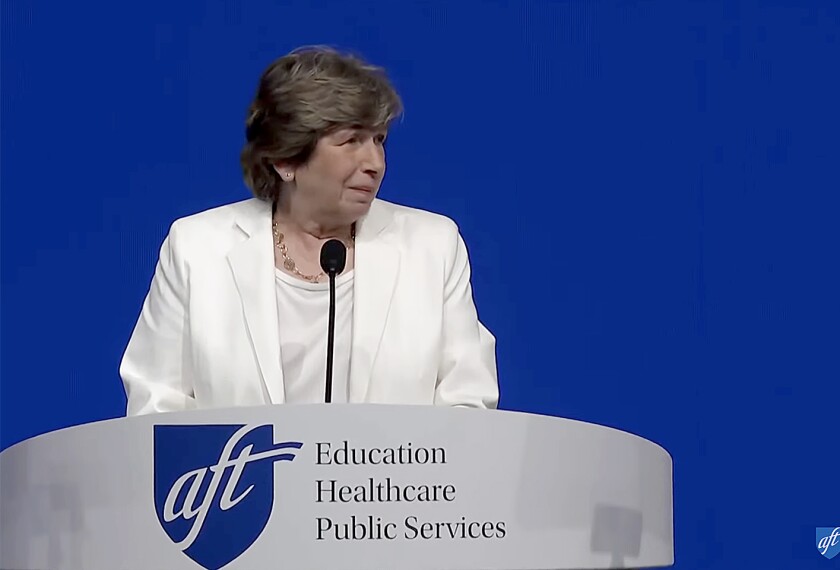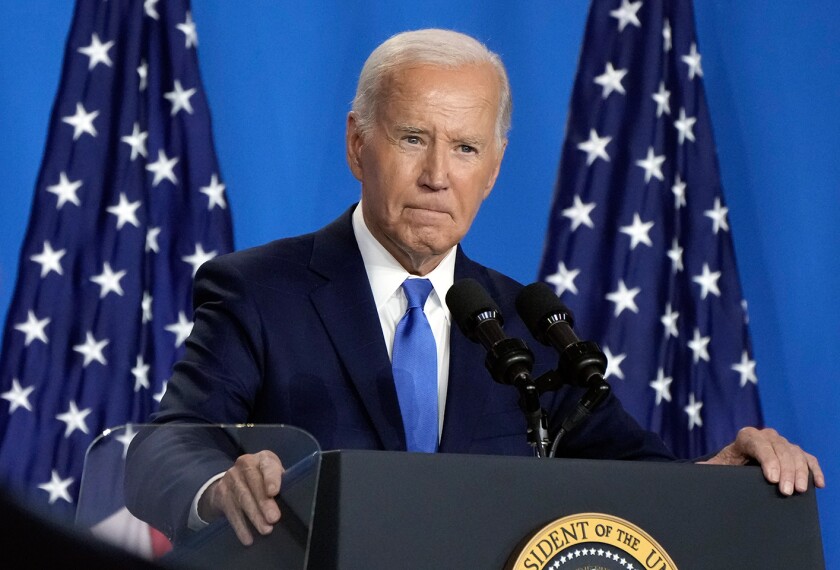Suggesting the difficulty President Bush may face in getting Congress to trim education spending in the coming fiscal year, the Senate this month narrowly backed a Democratic measure adding $5.4 billion in such aid to a budget blueprint.
The amendment offered by Sen. Edward M. Kennedy of Massachusetts, which seeks to restore some of the White House’s proposed reductions to college and vocational education programs, among other items, passed the Republican-controlled chamber 51-49 on March 17. Six Republicans sided with Senate Democrats in favor of the measure.
“I am pleased by my amendment’s passage and the signal it sends that this Senate can come together and restore Bush’s education budget cuts,” Sen. Kennedy said in a statement that day.
But the ultimate fate of that and other provisions in the Senate version of the fiscal 2006 budget resolution—which seeks to guide tax and spending decisions on Capitol Hill—is far from certain. The resolution passed by the GOP-controlled House takes a decidedly different approach to budget matters on key issues.
Some observers doubt that Congress will be able to agree on a budget resolution, the first step—though one lawmakers don’t always complete—for constructing the federal budget. In any case, it’s only later, in separate appropriations legislation, that Congress gets down to the nitty-gritty of spelling out funding levels for individual agencies and programs.
The crucial figure set forth in the budget resolution is the overall limit on such spending.
‘Not the Perfect Bill’
President Bush in February unveiled his budget request for fiscal 2006, which begins Oct. 1, proposing for the first time in a decade to cut overall Department of Education spending. He would reduce the agency’s discretionary budget by $530 million, or nearly 1 percent, to $56 billion, and eliminate 48 programs. (“Cuts Proposed in Bush Budget Hit Education,” Feb. 16, 2005.)
Those plans have encountered opposition from Democrats and even some GOP lawmakers.
But some top Republicans seem to be on board for the objective of scaling back domestic programs as part of the $2.5 trillion budget plan put forward by Mr. Bush.
“We have created a government that is too big and spends too much,” Rep. Jim Nussle, the Iowa Republican who chairs the House Budget Committee, said March 16 as floor debate began in his chamber on the budget.
The resolution that passed the lower house March 17 on a nearly party-line vote of 218-214 stayed within the general framework outlined by the president, especially his call for holding overall federal discretionary spending to $843 billion. There is no mention in the accompanying committee report of how much the House envisions spending on education, though the level in the broader budget category for education, health, and labor programs was the same as Mr. Bush’s request.
But a wrinkle emerged in the Senate’s deliberations, where the budget measure—which initially seemed generally to track the president’s plans—saw some notable changes, such as increasing education spending by $5.4 billion and removing nearly $15 billion in proposed Medicaid cuts.
“This is not the perfect bill, not the bill I would choose had I controlled the magic wand,” said Sen. Judd Gregg, R-N.H., the chairman of the Senate Budget Committee, after some 50 hours of floor debate. He voted against Sen. Kennedy’s amendment.
The overall Senate plan passed 51-49 on March 17, with all Democrats opposed, despite their support for Sen. Kennedy’s amendment. The House and the Senate now are on their Easter recess until the second week of April.
The Senate bill “really gives us our only hope,” said Edward R. Kealy, the executive director of the Committee for Education Funding, a Washington lobbying coalition that wants a big budget boost for education. He noted that, because of Sen. Kennedy’s amendment, the Senate’s discretionary spending ceiling is more than $5 billion higher than the House’s ceiling.
“Now we have a fighting chance here,” he said, “because if that number were to prevail, the appropriators would have more room.”




